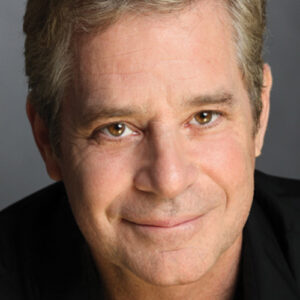Andrea Marcovicci
Feinstein’s/54Below, NYC, November 17, 2018
Reviewed by Alix Cohen for Cabaret Scenes

Photo: Maryann Lopinto
Andrea Marcovicci is, as Sondheim’s Desiree Armfeldt, sang, “tired of packing and unpacking” (A Little Night Music). After 30 years of crisscrossing the country, being welcomed with club residences of eight weeks or more (remember The Algonquin?), this bona fide member of cabaret’s golden age has decided to stick closer to home. On this, her 70th Birthday, Marcovicci and longtime collaborator Shelly Markham thank us for 30 years of loyalty with a show that hardly “fades into that good night.
https://housecalldentists.com/wp-content/languages/new/amitriptyline.html
”
I was in high school the first time a family friend took me to the Oak Room to hear Marcovicci. Thereafter, attendance at a November show became one of my birthday presents.
I remember the erudition and illumination of those evenings, which featured quotes, anecdotes, and readings; the performer’s balance of elegance and remaining graciously accessible; her respect for the lyrics; and her exquisite enunciation, humor, and indisputable charisma.
Tonight’s farewell, her last solo show in NYC, is a compilation of favorites and songs Marcovicci never had the opportunity to sing. It includes no literary references; only the voice has changed. The artist recently lost her mother, Helen, a 1940s torch singer who joined her for many Algonquin encores. Marcovicci says, “She wiped the floor with me.
” Helen’s own CD, Seems Like Old Times, is terrific. (Later, two numbers are performed as tribute to her mother.) In addition, her daughter Alice just graduated college with honors. A new chapter begins.
Opening with theatrical skill, Marcovicci offers George Gartlan’s “The Lilac Tree” and Ira Gershwin/Kurt Weill’s “One Life to Live.
https://housecalldentists.com/wp-content/languages/new/lasix.html
” In the first, a little girl refuses to be kissed until apples grow from the flowering tree. “What didn’t I learn about manipulating men from that song,” she quips. “The rest I learned from I Love Lucy.” Marcovicci nah-nahs her swain who cleverly ties fruit to the branches.
The second song manifests that girl grown up: “If there’s a party, I wanna be the host of it, If I’m in town, I wanna be the toast of it” she sings, bouncing slightly, crinkling her nose, and being met with appreciative applause.
The seldom heard “And I Dance” (Babbie Green) is a master class in phrasing. Markham’s nuanced piano accompaniment stops and starts as if he were breathing with the vocalist. Marcovicci recalls midnight shows at The Gardenia in Los Angeles. “Now my 9:30 shows seem really, really late,” she sighs.
“Henry,” a song cycle written by Judith Viorst and Shelly Markham, is divided into three parts: “I have fallen in love/His name is Henry” arrives with surprise and delight. “He’s playing around/I have to choose between homicide and Henry” is shocked and sad. “I’m going to stay with Henry/And that is against all my principles” is moving and womanly.
This is an actress.
A quartet of Irving Berlin ballads sets the bar high.
During “Say It Isn’t So,” one palm extends flat as if to implore, then raises in a stop gesture. “What’ll I Do?” is a nostalgic, shadowy waltz. Now the palm is in her lap, almost resigned. A bruising “Remember” draws it to her heart, then, emotionally tired, turns it over on one knee. Verses of “Supper Time” seemingly emerge with effort. Her head tilts back, eyes close, hands are still. Without wailing, the pain achieves aching urgency.
“We’re living in challenging times” introduces Jerry Friedman’s “Springtime” performed by Marcovicci in The Mark Taper Forum’s production of The Ghetto of Vilna. In English and Yiddish, the number, like “Supper Time,” is wrenching, not hysterical. This artist brings dignity to her interpretation.
Alec Wilder’s wistful “Is It Always Like This?” was one of Mabel Mercer’s favorites. (“Mabel, who sang her third show at 2 am!”) Similar distinctive shading engages us with a Marcovicci favorite, Christine Lavin’s “The Kind of Love You Never Recover From.” She might just as well be referring to her relationship with us, her audience: “This is the kind of love you never recover from/Don’t tell me that I’m gonna find another one/To take your place.”
Written for this show, “Crossing Time” (Lesley Alexander/Shelly Markham) is both personal and universal. Like slowly looking at a box of old photos, Marcovicci takes us through important moments in her life with gratitude. It’s a lovely song.
Andrea Marcovicci’s charm exerts gravitational pull because it’s never been only skin deep. Esteem for material, conviction, and craft follow wherever she goes. We wish her success in West Coast pursuits of teaching, acting, and time going barefoot—until 2019’s New York Cabaret Convention brings her back to town.
https://housecalldentists.com/wp-content/languages/new/bactroban.html





